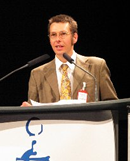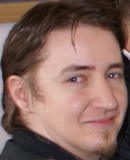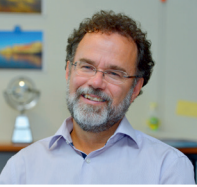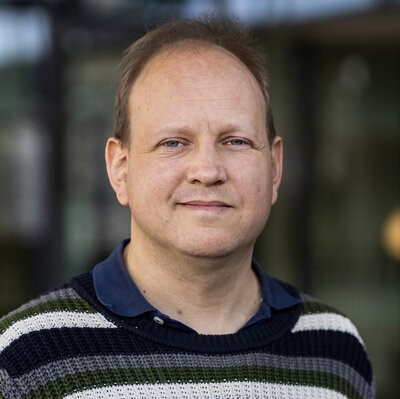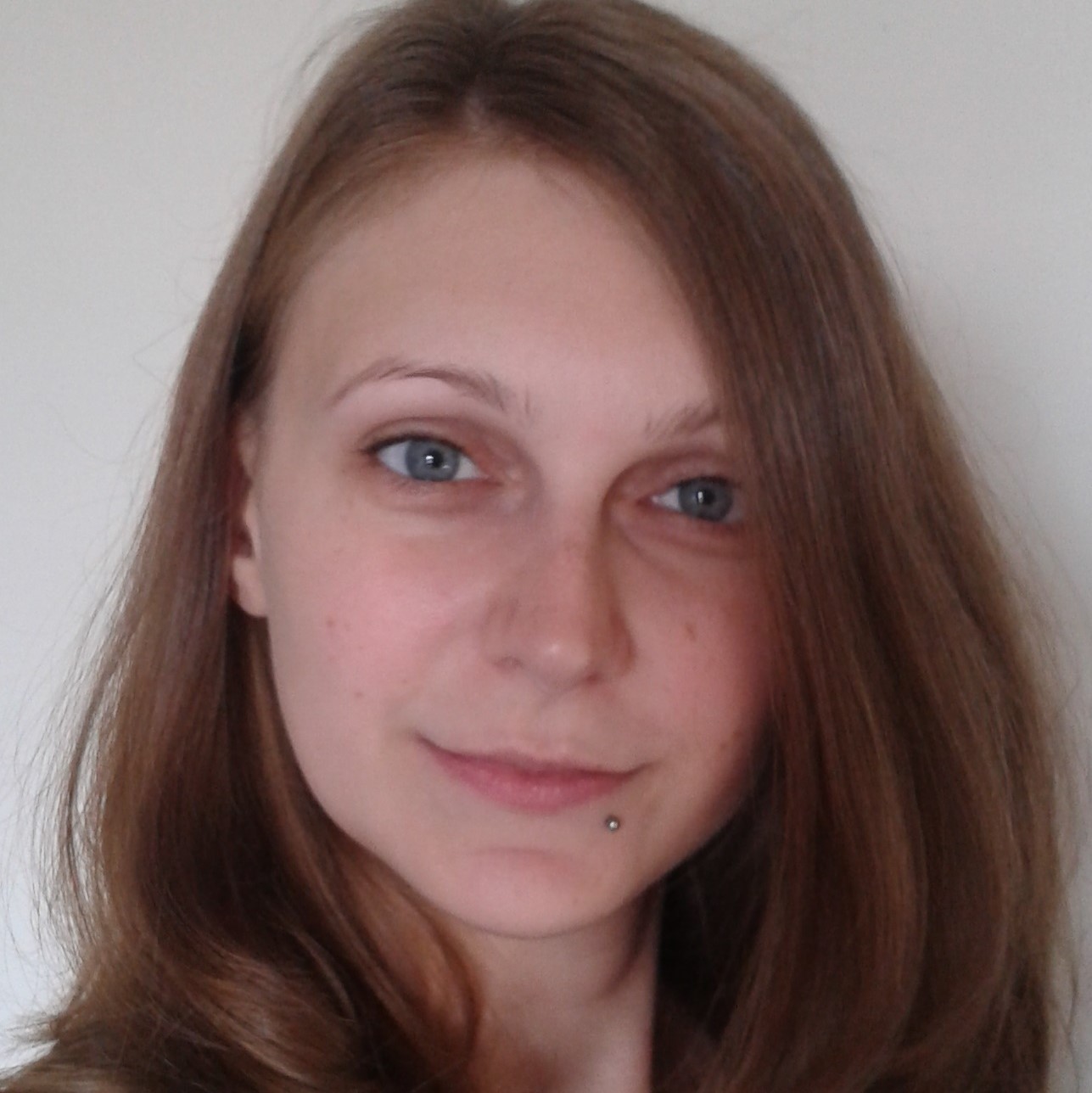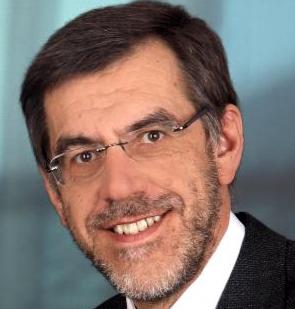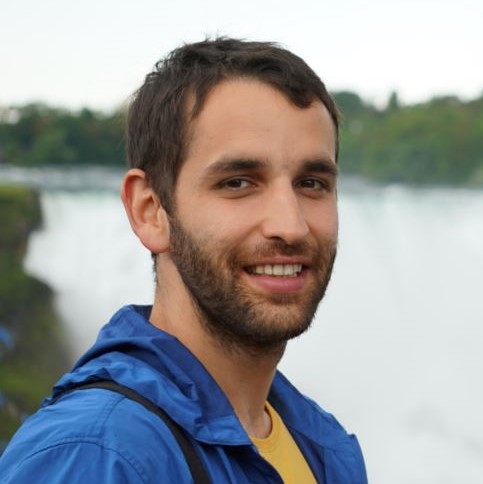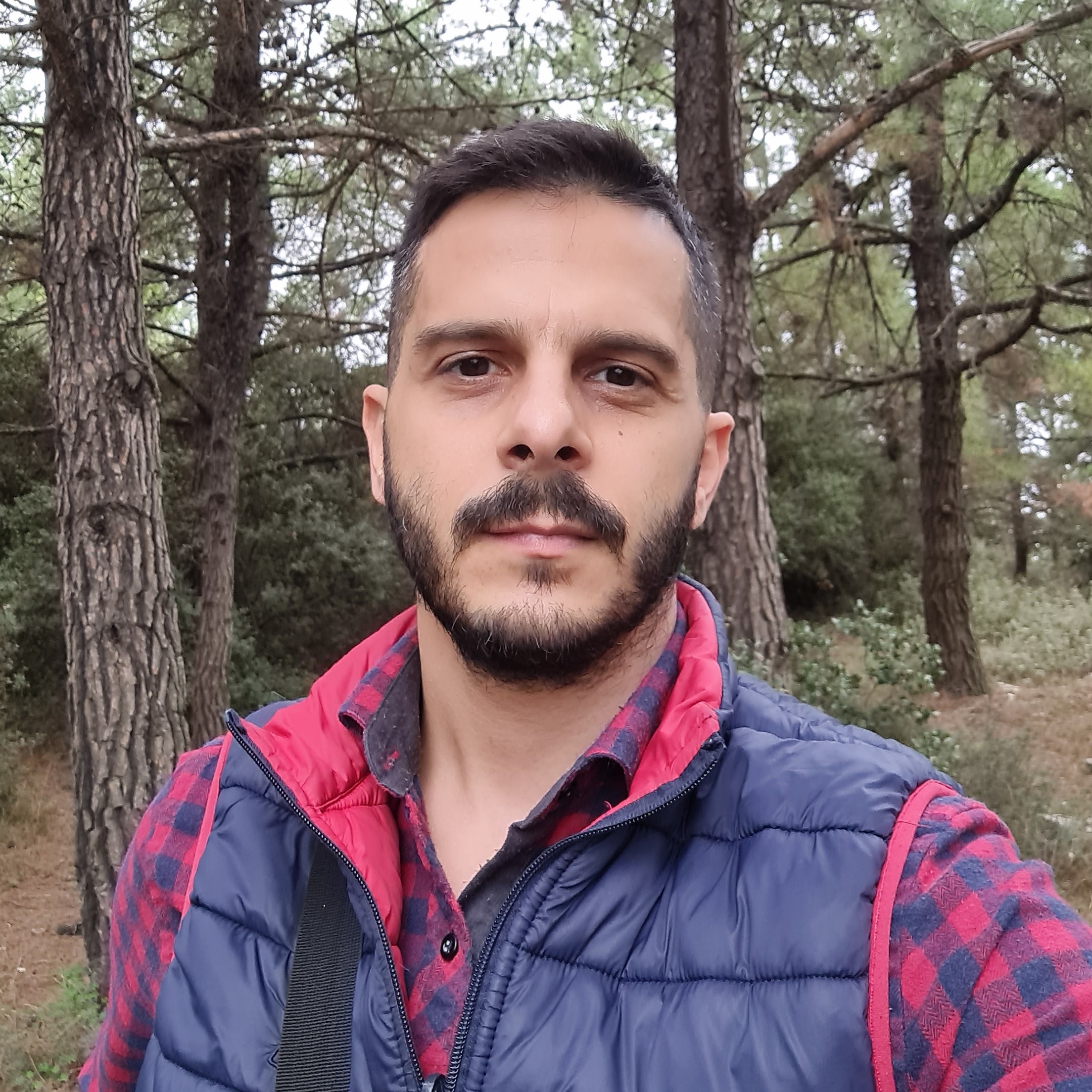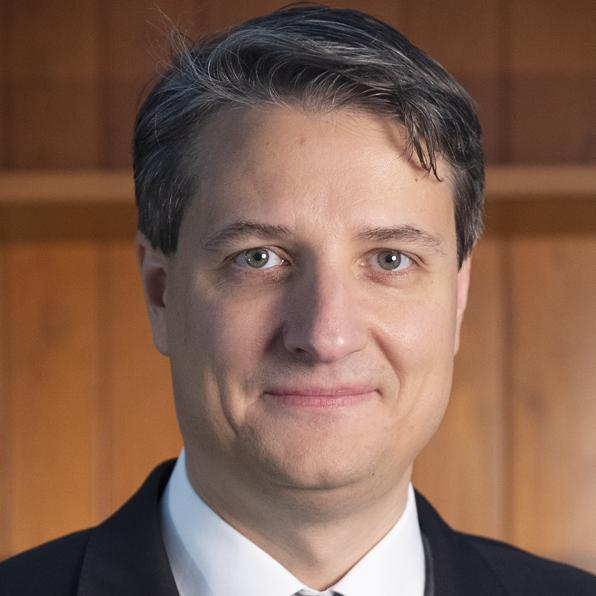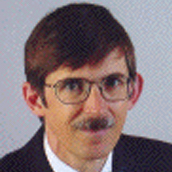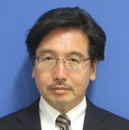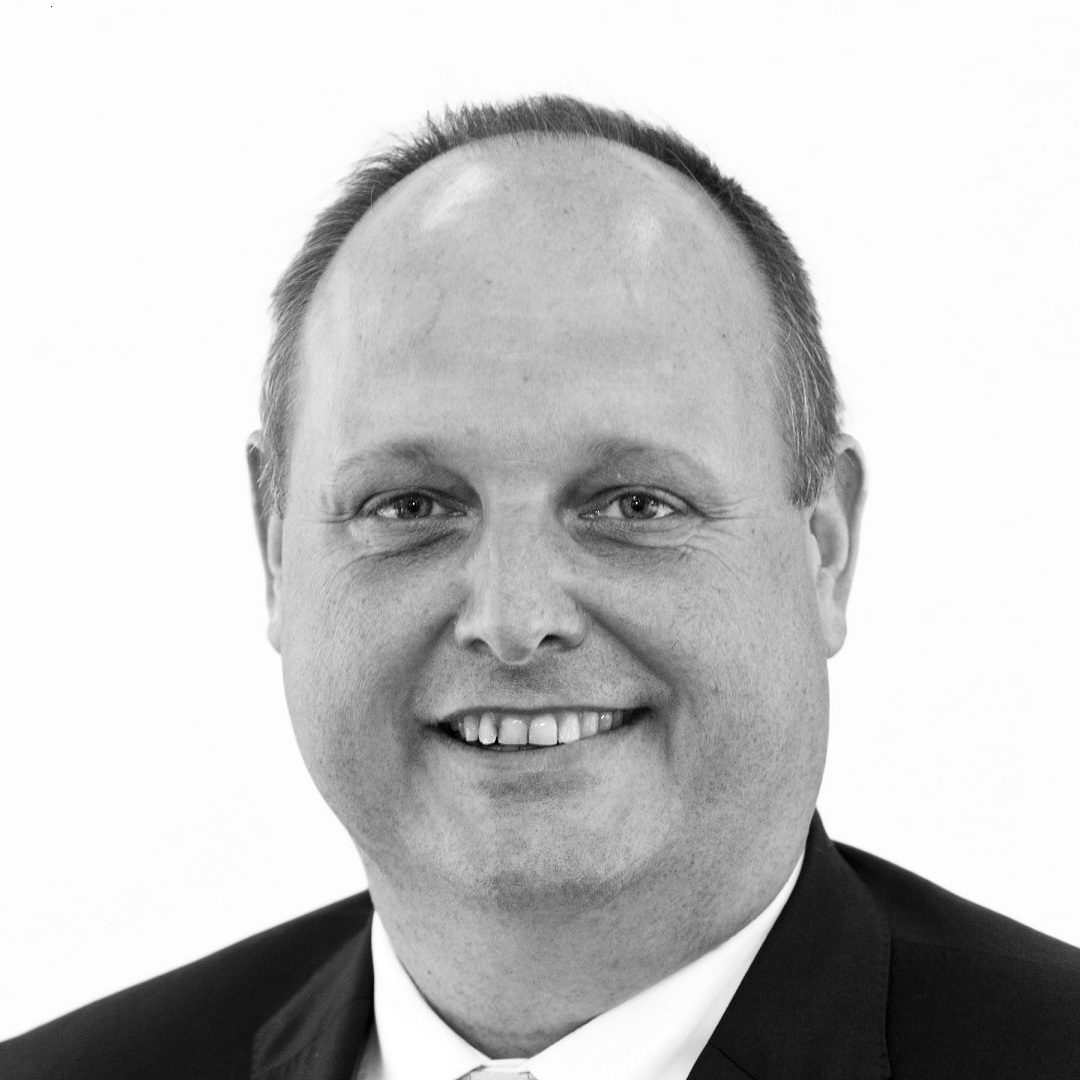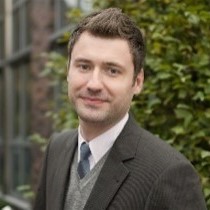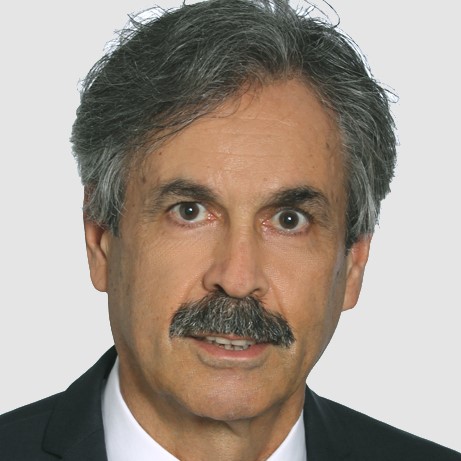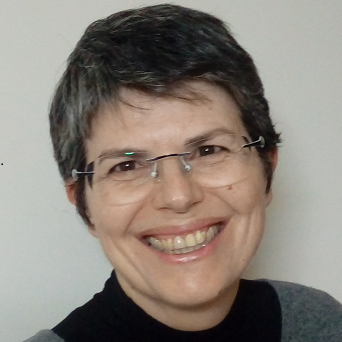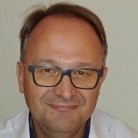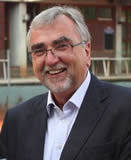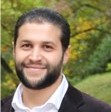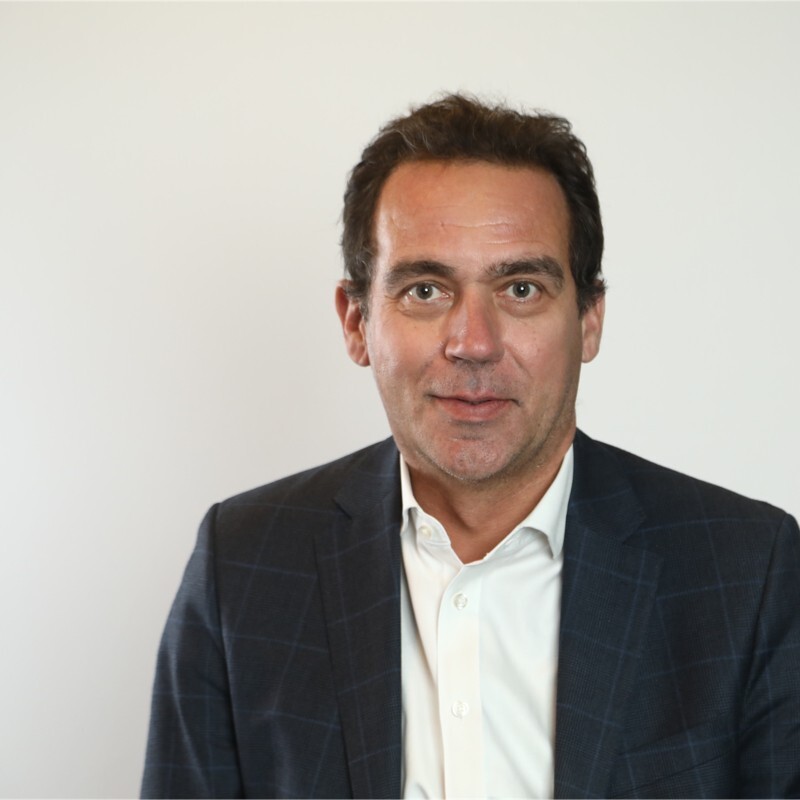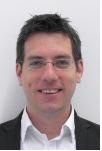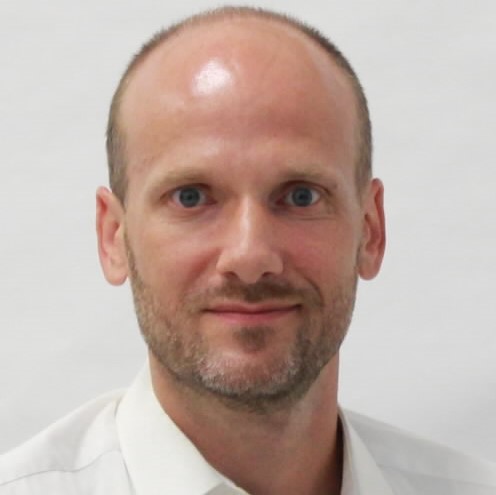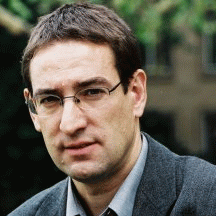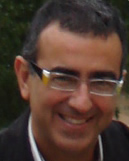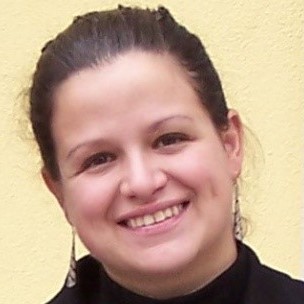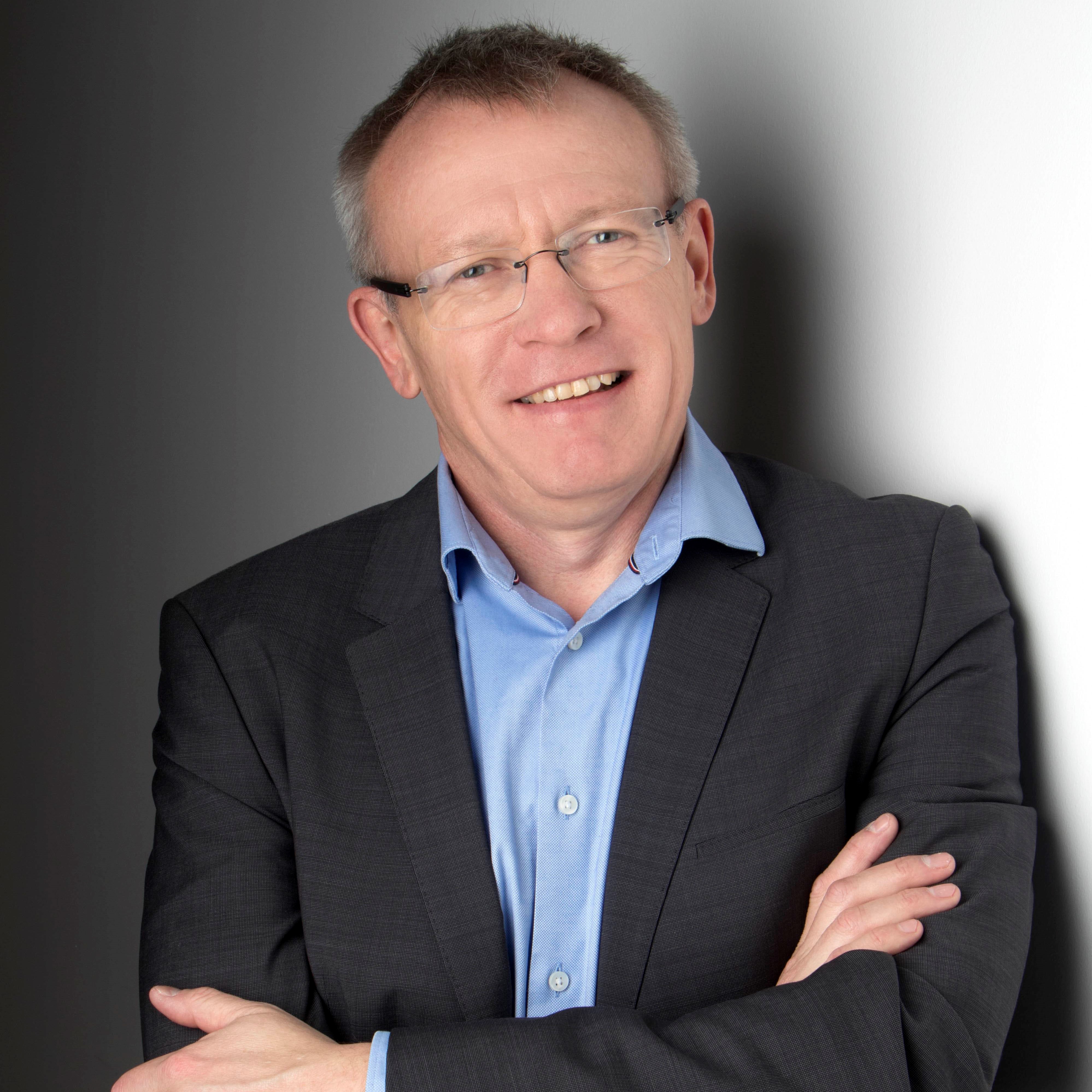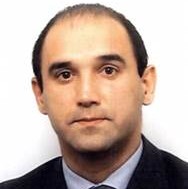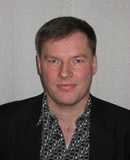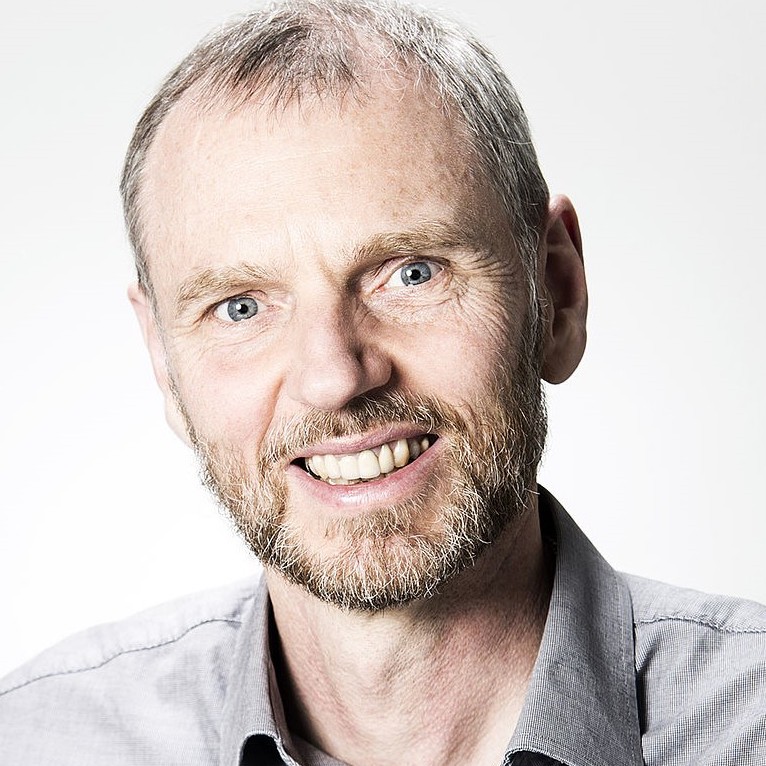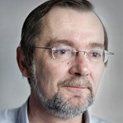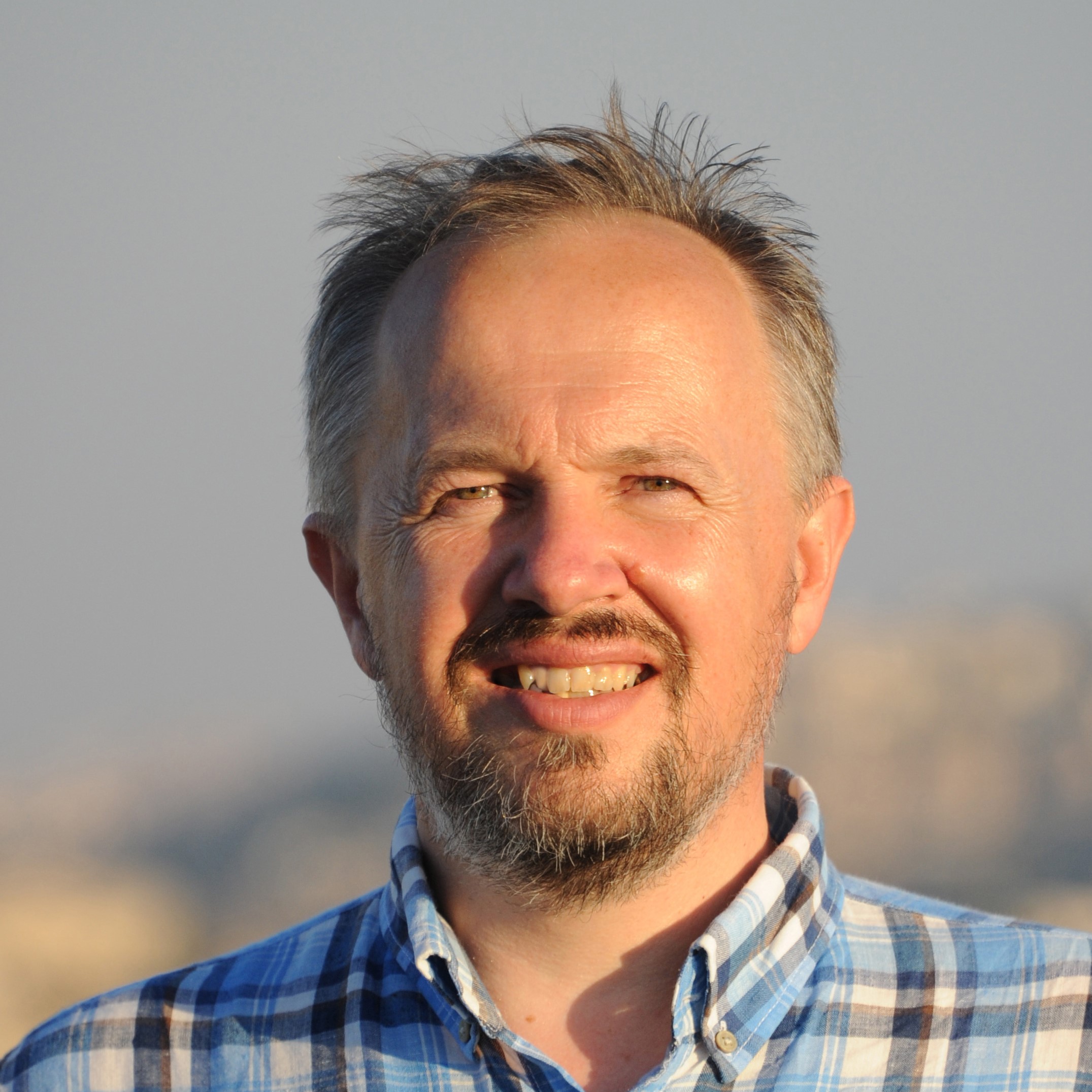Abstracts
Have a look at the lecture abstracts of this year's edition and explore the profiles of the presenters!
All times are UTC+2 (Vienna, CEST - Central European Summertime).
The current industrial transition towards Factories of the Future (FoF) implies strong transformation of enterprise Business Models within the manufacturing sector. Product Service Systems are a key component of this transition, and contribute to renovate both the underlying enterprise models and the needs of enterprise engineering tools. The objective of the lecture is to articulate the overall needs of transition towards FoF with the requirements for innovative conceptual modelling approaches and new enterprise engineering methods and tools. The lecture will first give a synthetic insight on PSS within the context of FoF, to make possible for the audience to understand the key concepts of PSS and key industrial needs for developing innovative enterprise modelling and engineering solutions. The second part of the lecture articulate two dimensions of Enterprise engineering: an advanced modelling method dedicated to support PSS design and engineering (based on a PSS-oriented meta-model) and a decision-making approach for PSS economic-model balancing.
Lecture at NEMO2023
Date/Time: Friday, July 21, 2023 at 09:00 UTC+2/CEST
Knowledge Graphs have been primarily investigated as engineered artifacts by themselves – from their underlying formalisms (e.g. description logics), enabling technologies (e.g. RDF, LPG) to their knowledge management and semantic enrichment capabilities.
We aim to shift focus from what Knowledge Graphs are or how they can be built towards how they can be relevant to Information Systems engineering. We also aim to investigate their place in the Conceptual Modeling paradigm, specifically how Knowledge Graphs can enable new flavors of model-driven engineering or low-code engineering. Research advances on the interplay between Knowledge Graphs and Machine Learning or Natural Language Processing for systems engineering purposes are also discussed.
Lecture at NEMO2023
Date/Time: Monday, July 24, 2023 at 09:00 UTC+2/CEST
The Safeguards Department of the International Atomic Energy Agency (IAEA) ensures the peaceful use of nuclear material and activities in accordance with legal agreements between the IAEA and member states. In order to verify compliance with the agreements, Safeguards staff verify the consistency between member states declarations with observations in the field (often at nuclear facilities) along with observations from other Safeguards relevant information collected in headquarters. The Department has developed and continues to develop a suite of custom designed software to enable the department’s work. The digitalization of work processes is key to increase the efficiency and effectiveness of the workforce. Some important considerations in this regard are: It is vital to know your users, the business of your users, and your user’ capabilities. Knowledge gaps in any of these areas increases risks, and increases the likelihood of project failure; well designed digital workflows can bring a range of benefits which may not be immediately evident. While digitizing a workflow can help stakeholders understand what needs to be done now, over time the output could be used to identify patterns of past behavior, and can form the basis of future predictions; training and assessments can be used to increase users’ knowledge and engagement with new systems. When deploying a new system, engaging with users and providing training is critical. Post-training assessments can be used to help users identify and retain key points from the training.
Lecture at NEMO2023
Date/Time: Monday, July 17, 2023 at 09:00 UTC+2/CEST
Value modeling has been a staple of the enterprise modeling discipline for the design of value networks. E3value is historically a prominent technique for value modeling. For a given scenario it focuses on modeling the involved actors and what they exchange of value with each other. In this talk, I will introduce e3value, and reflect upon lessons learned from its application to domains as diverse as the electricity sector and the healthcare sector. Lessons learned include situational adaptation of e3value, as well as the need to embed the language is a larger suite of modeling languages such as ArchiMate to increase the potential of analyses that involve cross-cutting different organizational perspectives, which characterizes enterprise modeling.
Lecture at NEMO2023
Date/Time: Thursday, July 20, 2023 at 10:00 UTC+2/CEST
Metamodeling concepts comprise not only the selection of appropriate methods but also the syntactic and semantic specification of modeling techniques. Moreover, these techniques need to be accompanied by a proper notation as well as mechanisms and algorithms that enable the processing of created models. Lastly, the actual way of applying a certain modeling technique by means of a modeling procedure needs to be specified.
Lecture at NEMO2023
Date/Time: Monday, July 17, 2023 at 14:00 UTC+2/CEST
Processes are ubiquitous for modeling dynamic phenomena in many areas like business, production, health care, robotics etc. Many of these applications require to adequately deal with temporal aspects: durations, deadlines, temporal constraints and goals. Nevertheless, temporal aspects are not yet prominently treated in requirements engineering or business process management. Models for representing requirements need to express temporal properties of the context resp. the environment, which have to be considered for designing systems. And they need to express temporal conditions, which have to be satisfied or which represent properties of goals that should be reached. Models, therefore, contain constructs for durations, temporal constraints like admissible time-span between events, and deadlines. Furthermore, these models need a notion of correctness and we discuss different notions like satisfiability and controllability. We also present techniques, which can be employed to check whether temporal requirements are conflicting and to derive temporal properties.
Lecture at NEMO2023
Date/Time: Wednesday, July 19, 2023 at 09:00 UTC+2/CEST
The course will describe and demonstrate a workflow model and a set of tools for holistic data management in the historical sciences: from recording and documenting historical information from primary (archival) sources, to modeling and integrating the data using a standard ontology, in particular the ISO standard CIDOC CRM (ISO 21127:2014), as well as exploring and analyzing the integrated (linked) data both quantitatively and qualitatively. We will motivate the problem, provide implementation details, and present real applications using data and requirements from two large ERC projects in the fields of Maritime History (project SeaLiT) and Art History (project RICONTRANS).
Lecture at NEMO2023
Date/Time: Wednesday, July 19, 2023 at 14:00 UTC+2/CEST
Blockchains constitute a technology that became popular through the success of Bitcoin and other cryptocurrencies. Besides these applications, the underlying technologies provide interesting opportunities for new types of business models and applications that benefit from transparency and decentralization in potentially untrusted environments. In this lecture we will explore how enterprise modeling can be used in this context. In particular we will review recent approaches for combining enterprise models and blockchain technologies and how such combinations may be realized technically.
Lecture at NEMO2023
Date/Time: Tuesday, July 25, 2023 at 09:00 UTC+2/CEST
Enterprise models are created to represent business and Information Technologies (IT) elements and to abstract the relation between them in one enterprise under study. They provide value for an organization when they are used to support enterprise analysis. The process of constructing an enterprise model is complex and requires demanding activities such as human observation, consulting sources of different natures, and interpreting unstructured information. Thus, building an enterprise model that properly represents the enterprise has a high level of difficulty.
The difficulty is based on two main reasons:
1. the enterprise size and complexity and
2. several uncontrolled factors that affect the modeling process such as sources quality and lack of information.
Models represent the state of the enterprise in a given moment, but enterprises change continuously, which implies that models are inherently imprecise. Thus an enterprise model may lack complete information and even contain imprecise or inconsistent information; then, they must be refined when new information is gathered from enterprise sources. Thus, model imperfection is inevitable in enterprise models. Then, it is better to include information in the model to represent explicitly certain problems than to ignore them and assume that the model accurately represents the enterprise. Modeling the imperfection implies creating other kinds of models called imperfect models, which contain information that can assess the imperfection. Identifying and measuring the imperfection of an enterprise model can determine whether the model is useful for further purposes such as analysis.
Lecture at NEMO2023
Date/Time: Thursday, July 27, 2023 at 14:00 UTC+2/CEST
Conceptual models are of pivotal relevance for the design, maintenance and use of software systems. However, the design of modeling languages and corresponding tools suffers from serious limitations. They concern the lack of expressiveness, the lack of abstraction and, as a consequence, limited reuse and adaptability, as well as dissatisfactory integrity. Over the last twenty years research on multi-level modeling has produced various approaches to overcome these limitations. Different from traditional language architectures such as the MOF, multi-level architectures enable an arbitrary number of classification levels. This way, they allow for the specification of DSMLs with more general DSMLs and enable relaxing the notorious power-generality trade-off. Furthermore, frustrating problems caused by the lack of expressiveness MOF-like language architectures suffer from can be avoided.
This talk will start with explaining the serious shortcomings of prevalent language architectures. Subsequently, essential features of multi-level language architectures are presented. Finally, the talk will give an introduction to a specific multi-level language, the FMMLx, and a corresponding language engineering, modeling and execution environment, the XModelerML. Among other things, the XModelerML enables the common representation of models and tools (because it features a multi-level programming languages). Thus, it does not only allow to overcome the notorious synchronization problem, but also to develop new architectures of enterprise application systems that provide for unprecedented levels of reuse, adaptability and user empowerment. The presentation of core concepts is supplemented with a short tool demo.
Lecture at NEMO2023
Date/Time: Tuesday, July 18, 2023 at 10:00 UTC+2/CEST
The Digital-first Era imposes a shift from the conventional System Engineer working with system blueprints, towards a Digital Engineer profile which includes the ability to incorporate in the engineered artifacts semantics from the application domain, about goals, resources, and business processes. For conceptual models, this implies a shift from a representation to a mediation role, and Knowledge Graphs (KG) are a technological ingredient that can facilitate this shift.
This presentation will focus on practical examples suggesting new flavors of model-driven engineering that become possible when diagrammatic models and knowledge graphs work together towards achieving semantic enrichment that becomes available to even the simplest software artifacts, e.g., Web pages built with traditional means (PHP, HTML). In the showcased approach, the Digital Engineer can use conceptual modelling to capture diverse semantic facets of an enterprise and to streamline those to engineering activities. The demonstration will include introductory hands-on practice: first with semantic graph queries and reasoning on generic minimalist semantic graphs, followed by demonstrations of the semantic enrichment capabilities found in the Bee-Up modelling tool.
Lecture at NEMO2023
Date/Time: Monday, July 24, 2023 at 10:00 UTC+2/CEST
Requirements Engineering (RE) has been applied with remarkable success for specifying the requirements for systems or products. However, as RE has traditionally been performed as a heavy-weight, upfront process for creating a comprehensive specification, it has been criticized or even declared obsolete in recent years, particularly by the proponents of agile development. In this talk, I will shed light on the role of requirements in today’s digital world, discuss how this relates to enterprise modeling, and show how modern RE can contribute to shaping, evolving and sustaining digital systems and products.
Lecture at NEMO2023
Date/Time: Tuesday, July 18, 2023 at 09:00 UTC+2/CEST
Many ecosystems such as Facebook, Google, Amazon, Uber, and many more are not considered as fair. This is amongst other demonstrated by the European Commission, who fines the dominant parties of these ecosystems regularly. We explain, in a model-based way why such ecosystems are unfair, and how the model can tell this. We also give some guidelines how to design fair ecosystems and the required decentralized information technology to accomplish these. We also give some examples of ecosystems that are from a structural point fairer than the well-known platform-oriented ecosystems.
Lecture at NEMO2023
Date/Time: Tuesday, July 25, 2023 at 15:00 UTC+2/CEST
We define Japanese creative services and discuss how they have been sustained successfully and its application to global service enhancement. There are many “Shinise” (shops of long standing) service companies in Japan that are quite unique compared to the companies located in any other geographical region. They typically have anecdotal values based on nature and seasons, various types of culture, histories, and/or lifestyles. Several Japanese creative services are expanding their activities toward global markets. We explain the mechanisms of the sustainability and scalability of advanced cases of Japanese Creative Services. A key aspect of the mechanism is a communication between service providers and consumers based on sharing/interpreting/utilizing of tacit context in a community. For analyzing the key aspect, we propose the combined approach of sociology/anthropology, psychology, engineering and design thinking. We developed a meta-modeling platform for handling the combined analysis of the Japanese Creative Services. We believe that this kind of approach will contribute to creating new values within the field of service science and for value-added global services.
Lecture at NEMO2023
Date/Time: Tuesday, July 18, 2023 at 11:30 UTC+2/CEST
Growing evidence supports the effectiveness of a novel, integrated approach to health and wellbeing by recognizing the interconnectedness of physical, mental, social, and other aspects of an individual’s life. Achieving balance across all these domains is crucial to promoting overall health and wellbeing. Embracing an integrated approach is also driven by the importance of empowering individuals to take charge of their health and wellbeing, make informed decisions, and effect positive changes that enhance their overall quality of life. While digital technologies provide tools and platforms that promote healthy behaviors, foster social connectivity, and support mental and emotional wellness, they often work in isolation, do not aim for people empowerment, are not tailored to user needs, and can be overly complex for non-native digital users.
This presentation reports on the research presently carried out at the Innovation Value Institute, Maynooth University, on the use of digital technologies to empower individuals to manage their health and wellbeing. In particular, it presents the architecture, data governance aspects and main characteristics of a Digital Ecosystem for Empowerment on Integrated Health and Wellbeing. As a key driver of the transformation, data requires appropriate governance practices underpinned by architectures that allow safeguarded and trusted data sharing. By providing access to personalized health information, resources, and tools, the ecosystem, among others, creates increased independence, supports healthy behaviors, reduces feelings of loneliness and isolation, and improves mental health and emotional wellbeing, ultimately leading to a higher and sustainable quality of life and relieving the pressure from the present healthcare system.
Lecture at NEMO2023
Date/Time: Wednesday, July 19, 2023 at 10:00 UTC+2/CEST
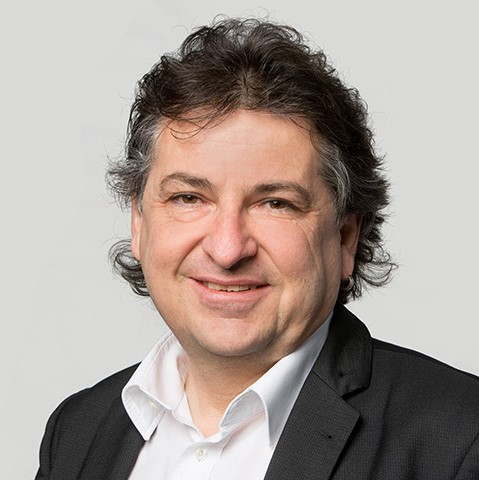
University of Applied Sciences and Arts Northwestern Switzerland FHNW, Switzerland
The continuous alignment of business and IT in a rapidly changing environment is a grand challenge for today’s enterprises. Decision-makers use models to understand and analyze a situation, to compare alternatives, and to find solutions. While humans prefer graphical or textual models, semantic annotation makes the knowledge in models machine-interpretable. The approach has been applied in the CloudSocket project for the selection of cloud services to achieve Business Process as a Service. This presentation also describes a meta-modelling approach, which combines human-interpretable graphical enterprise architecture models with machine-interpretable enterprise ontologies. A metamodel which is represented as a formal ontology determines the semantics of the metamodel. Every time a new modelling element is created during modelling, an instance for the corresponding class is created in the ontology. Thus, models for humans and machines are based on the same internal representation.
Lecture at NEMO2023
Date/Time: Thursday, July 20, 2023 at 09:00 UTC+2/CEST
An important climate target recently established by the EU is a 55% decrease in greenhouse gas emissions (by 2030), with the goal of achieving complete climate neutrality by 2050. Considering this, companies need to critically reflect upon their business processes and aim to reduce greenhouse gas emissions as well as energy and resource utilization. At that point, process-oriented quality management methods like Six Sigma or Lean Management can make substantial contributions in reorganizing a company’s processes to meet environmental goals and come to resource-saving operations. The issue is that a standardized definition of “green quality” along with corresponding quality dimensions has not yet established. Accordingly, companies search for ways to adapt, modify, or enhance existing quality management methods to pursue different sustainability goals. In this light, the lecture proposes an approach to construct enterprise-adapted and easy-to-use quality management approaches to pursue environmental sustainability goals on a process level. Thereby, conceptual model types are used to document, process and communicate the results generated in projects.
Lecture at NEMO2023
Date/Time: Thursday, July 20, 2023 at 14:00 UTC+2/CEST
Internet‘s evolution into a generic platform and a pervasive environment enables the creation, provision and consumption of digital services. Cloud-based deployment models offer transparent access to services for a worldwide group of users. The models support 24/7 availability, location independence as well as autonomy of resource processing limitations. At the same time, digital services are the basis of new and innovative business models. All of the above is expected to take place in the digital transformation process. Is it really feasible this way?
Lecture at NEMO2023
Date/Time: Monday, July 17, 2023 at 15:00 UTC+2/CEST
The lecture concerns an approach to the application of conceptual modelling known as the Capability Oriented Requirements Engineering (CORE) approach. The conceptual modelling framework applied in CORE employs a set of complimentary and intertwined modelling paradigms based on enterprise capabilities, goals, actors, and information objects. The lecture will define the foundational concepts of CORE as well as the way of working from capturing textual descriptions from stakeholders, progressing to formally defining models of early requirements, based on the CORE meta-model, and in a stepwise refinement define functional and non-functional requirements of desired systems. The theory will be supplemented by examples from a real application of CORE on a Cyber Physical Production System.
Lecture at NEMO2023
Date/Time: Thursday, July 27, 2023 at 09:00 UTC+2/CEST
In an era of global economy and frequent changes caused by digital transformation, innovation, and other factors, the systems development faces the need for continuous realignment with new enterprise goals, business processes, and technologies. To achieve a successful realignment, availability of knowledge about the enterprise and its environment (including new technologies) becomes an enabler of successful definition of requirements and implementation of changes at the business and technology level. Enterprise models are an important source of knowledge that can be represented using commonly available enterprise architecture notations. Sticking to common notations helps not only to represent the knowledge about the enterprise but also to show a generic knowledge about new technologies, for instance, low-code/no-code development; and such representation, in turn, helps in the adoption of these technologies.
Lecture at NEMO2023
Date/Time: Monday, July 24, 2023 at 14:00 UTC+2/CEST
In general, process algebra can be the most suitable formal method to specify IoT systems due to the equivalent notion of processes as things. However there are some limitations to predict smart IoT systems with the properties of distribution, mobility and real-time. For example, Timed pi-Calculus has capability of specifying time property, but is lack of direct specifying both execution time of action and mobility of process at the same time. And d-Calculus has capability of specifying mobility of process itself, but is lack of specifying various time properties of both action and process, such as, ready time, timeout, execution time, deadline, as well as priority and repetition. In order to overcome the limitations, this lecture presents a process algebra, called, dTp-Calculus, extended from d-Calculus, by providing with capability of specifying probabilistic transitions with the set of time properties, as well as priority and repetition. Further the method is implemented as a tool, called SAVE, on the ADOxx meta-modeling platform. It can be considered one of the most practical and innovative approaches to model probabilistic behavior of smart IoT systems.
Lecture at NEMO2023
Date/Time: Wednesday, July 19, 2023 at 15:00 UTC+2/CEST
Research has often been regarded as a “wicked problem”, an activity of informed curiosity when researchers state what they are doing when they don’t really know what they are doing. It is a process which is guided by a particular methodology the choice of which is based on the contextual setting of the research topic (the challenges) as well as the motivation for a solution (the deliverables). In this lecture, we will examine issues involved in research with particular emphasis on research in the field of Enterprise Information Systems (EIS). We will examine the issues underpinning the EIS domain, the emergence of research needs from digitisation, to interpretation and more recently to transformation of enterprises. Given this context, we will explore different research methodologies that may be deployed, such as those of Design Science Research, Action Research, Case Study, Survey Design, Mixed Methods and Qualitative Methods, each one of which is suited to different motivational characteristics of the underlying research goals. We will also explore the social dimension of research, including issues encountered by researchers in settings involving communities within their specific research environment as well as other related communities (e.g. the NEMO Summer School) and the broader EIS community. Branching out from a close research environment by exploiting gained experiences, towards collaborative initiatives, competing for research funding and helping the next generation of researchers will also be addressed in this lecture.
Lecture at NEMO2023
Date/Time: Thursday, July 27, 2023 at 15:00 UTC+2/CEST
Nowadays, modern business includes acquisition and store of enormous data volumes, larger than ever before. Most often, collected data are used in a shorter time frame, and then they are archived and almost not used, effectively. On the other hand, such data represent a significant value that a company can utilize so as to reach created goals and provide a sustainable development. Unfortunately, a daily practice in many companies still intensively points out to the problem of a serious gap between the identified needs for knowledge, on one hand, and inability of modern software products to address such needs in an effective way, on the other hand. Despite that massive data volumes already exist and that modern information solutions provide the excellent technology prerequisites for a development and industry implementation of high quality software applications. We can call such a phenomenon a “big data crisis”.
Some of important causes of the aforementioned phenomenon are in the following: (1) Unsatisfactory level of organization maturity in regard to the: capabilities for information management, quality management, and business processes; (2) Unsatisfactory level of accumulated knowledge in a problem domain; and (3) Unsatisfactory level of accumulated knowledge in a domain of software engineering, particularly in a domain of the development and formal specification of models for software products aimed at generation of company knowledge and decision support. Alleviating the aforementioned phenomenon is a strategic and long term task, possible by simultaneous addressing all its significant causes, only. In this talk, some of the author’s research and educational efforts will be presented, trying to address the most influencing factors for information management and innovations, leading to the digital transformation process.
Lecture at NEMO2023
Date/Time: Thursday, July 20, 2023 at 11:30 UTC+2/CEST
Dealing with modeling, i.e., defining modeling languages and using them consistently is not everyone’s cup of tea. While in engineering, especially for life-critical systems, modeling is a matter of course, in the practice of the software business one often encounters the opinion that the effort for systematic modeling does not pay off. Often also, the object under development is estimated so complex that it cannot be described with a modeling language but must be programmed right away. This is of course a contradiction in terms. For, programs are (representations of) models of processes, that are to be executed by a computer. In short: programming is modeling! Accordingly, requirements engineering also consists to a large extent of modeling. For practitioners, it would be desirable to be able to use requirements models as building templates, i.e., prescriptive models (specifications) that evolve in parallel with the system and become descriptive models of the final product. It is the task of Infomatics to provide suitable methods for this! Consequently, Informatics has for long systematized the field of modeling, for example by introducing model hierarchies, by ontological foundations, by developing universal modeling languages such as UML, or by specifying domain-specific modeling methods (DSSMs) for areas of application where universal approaches fail. For the design and implementation of reliable and resilient Enterprise Digital Twins and Digital Ecosystems, Conceptual Modeling is the key method. In this talk we aim at a better understanding of what this method is about. We will address the “anatomy” of conceptual models and show how they can be characterized by a signature. We combine this with a transparent explanation of the nature of conceptual models as the link between the dimension of language representation and the dimension of fixing a unique model semantics: Figuratively this leads to the triptych of conceptual modeling. Building on this, we show how digital ecosystems can be designed and developed in a rigorous model-centered approach. This is illustrated by the results of projects we have carried out in the areas of assistance systems and the development of mechatronic systems.
Lecture at NEMO2023
Date/Time: Monday, July 17, 2023 at 10:00 UTC+2/CEST
Agile manufacturing has been around for a while as a means to address changing customer requirements and turbulent markets. Among the critical challenges ahead of decision makers in the business sector, is how to deploy agility concepts at operational level. This lecture introduces agility concept with a focus on manufacturing domain and outlines solutions approaches to enable agile manufacturing. The lecture also highlights the role of business process management in fostering the deployment of agile manufacturing.
Lecture at NEMO2023
Date/Time: Monday, July 24, 2023 at 16:30 UTC+2/CEST
This talk is non-academical and will focus on the communication challenge between IT and business, notably between IT and decision makers. IT leaders tends to present to stakeholders too much technical and detailed information while neglecting the business context and other important interdependencies. Due to this communication obstacle, business decisions are often made based on incomplete and irrelevant information which may lead to insufficient new systems or services or more vulnerable systems due to underfunding in cyber security. Design Thinking has been applied in practice for building new IT systems and services. The main phases of Design Thinking are: (i) empathizing (identifying user needs), (ii) defining (stating user needs and problems), (iii) ideating (creating ideas), (iv) prototyping (start to build) and (v) testing. Design Thinking per se is a very visual approach which can be easily understood my non-IT and it is a powerful tool for enabling effective discussions among different business units composed of people with different backgrounds and skills. During my sabbatical leave, I have identified Design Thinking as a framework for identifying, assessing and mitigating potential cyber security challenges at an early design change, e.g. the phase of (ii) defining can be extended to “defining” potential exploration of the solution by an adversary. In this regard Design Thinking is a way towards the support of the principle of “Security-By-Design”. In my presentation, I will present some practical examples.
Lecture at NEMO2023
Date/Time: Wednesday, July 26, 2023 at 10:00 UTC+2/CEST
Hilti is providing products, system solutions and software-based services that contribute to make work on construction sites simpler, faster and safer. While Hilti is proud of its leading construction tools and consumables, it has started to engage itself in building digital products and solutions for its customers. In our presentation at NEMO Summer School, we describe how modelling approaches help us in building software solutions that satisfy the needs of our customers.
Relevant questions herein are:
(1) How do we reduce the variations and hence complexity of provided software features so that we can deliver them fast and in a reliable manner without compromising customer needs?
(2) How can we consider future scaling and performance needs in our software architecture?
(3) How can we achieve an architecture model that allows for identifying potential issues (or improvement needs) before they impair our software solutions?
We work on trying to answer these and other questions by (also) applying modelling approaches in a pin-pointed and efficient way.
Lecture at NEMO2023
Date/Time: Thursday, July 20, 2023 at 15:00 UTC+2/CEST
Hilti wants to make construction better and promises its customer’s that Hilti is the best partner for productivity, security and sustainability. To do so, Hilti offers not only physical products and related services but also a vast variety of software products. To live up to this customer promise for software products, it is not only important to build “Customer Centric Software Products“, but also to nurture the relationship with customers, to listen and learn from them. To fulfill this promise, Hilti established a software support organization that is currently undergoing a transformation from a “classical software support team” to a “customer advocates team”. The focus of this transformation lies not only on the services that are offered by the customer advocates team, but more importantly it triggers a change in the traditional mindset and skill set of software support engineers. In this slot we will discuss this transformation and derive 10 things customer advocates have to be good at, based also on the Digital Design Thinking approach and workshops conducted in our OMiLAB@Hilti node.
Lecture at NEMO2023
Date/Time: Friday, July 21, 2023 at 14:00 UTC+2/CEST
Business processes in the age of the internet are typically not restricted to single organizations but cross organizational borders to customers, suppliers and other organizations. The design of business processes for these business communities is a complex collaborative task, which requires special methodological support. This course introduces Horus, which includes a set of modeling methods and languages to support the whole life cycle of business processes within business communities. Horus is based on high-level Petri Nets for procedure modeling and provides additional modeling support for objects, resources, organizational structures, business goals and business rules. Simulation based concepts are provided to evaluate models. Besides describing the basic concepts of Horus, the course also gives an overview about ongoing research work.
Lecture at NEMO2023
Date/Time: Wednesday, July 26, 2023 at 09:00 UTC+2/CEST
Literature survey permits for conclusion that business process modelling is realized with the use of various technologies, notations, and software tools. This lecture aims to present that differentiation is right and valuable, because process modelling is conducted for achievement of different effects. This lecture focuses on just one process, named Publishing Cycle. University Publisher is the main actor in this process. First, this process is modelled in ArchiMate language to discuss process context, i.e., business, software, and infrastructure context. Next, models in BPMN and CMMN permit for discussion manual and automated tasks. Finally, the logic of business in presented with no-coding application development tools. Beyond process, the business documents and forms are modelled with the no-coding tools. The main components of application developed with no-coding technology cover input-output forms and software functionalities captured as a process. During the lecture, the open source no-coding tools are analyzed and compared. At the end, benefits of no-coding approach is discussed, particularly as valuable in pre-implementation system analysis.
Lecture at NEMO2023
Date/Time: Tuesday, July 18, 2023 at 15:00 UTC+2/CEST
A crucial success factor in information systems development is the alignment of the final software product with business goals, business semantics and business processes. Developers should be freed from programming concerns and be able to concentrate on these alignment problems. To assess that the right capabilities are used, sound Conceptual Modeling (CM) techniques within a Model-driven system development (MDD) must be applied in order to provide a structured and systematic approach to systems development, where developers can successfully use model transformation technologies to derive models of a lower abstraction level that can be further refined, even generating software code automatically. From the experience got with the use of advanced MDD platforms, this keynote will show how to use a Capability-driven Development (CDD) strategy in order to integrate business process modelling (BPM), requirements engineering (RE) and object-oriented conceptual modelling with the objective of leveraging MDD capabilities. The current state of the art on modelling methods and code generation tools will be discussed to explore different ways to match an information system with business requirements. Concrete principles, concepts and common practices of MDD will be presented with a special focus on model-driven requirements engineering, meaning by it how BPM and requirements models can be embedded in a complete CM-based software production process.
Lecture at NEMO2023
Date/Time: Monday, July 17, 2023 at 11:30 UTC+2/CEST
Despite their recent introduction and consolidation in the industrial practice, Product Service System business models are subjected to a further revision in order to fully exploit the opportunities and challenges provided by the Industry 4.0 technological paradigm. Companies need to identify and define new business models integrating PSS with digital technologies and, as a result, revise their decision-making processes. The design and development of a Product–Service System (PSS) raises new issues since the service component introduces further requirements than traditional product engineering. Compared to traditional and smart products, services are generally under-designed and inefficiently developed. Approaches such as New Service Development, Service Design and Service Engineering have emerged during the last decades to support the design and development of service either as a system itself or as a constituting element of a PSS. In particular, Service Engineering investigates service design and development with a systematic perspective and with a seamless integration of product and service contents. Purpose of the lecture is to provide a holistic conceptualisation and an up-to-date analysis of the current state of the art on the evolution of the concept of Product Service system and Service Engineering models with a specific focus on their adoption in the PSS context. A critical analysis is also performed with the aim to define a research agenda and the most prominent key actions that could give directions for future research.
Lecture at NEMO2023
Date/Time: Friday, July 21, 2023 at 10:00 UTC+2/CEST
Humanity has long since used models in different shapes and forms to understand, redesign, communicate about, and shape, the world around us; including many different social, economic, biological, chemical, physical, and digital aspects. This has resulted in a wide range of modeling practices that can be found across society. When the models as created and used in such modeling practices have a key role to play in the activities in which these modeling practices are ‘embedded’, the need emerges to consider the effectiveness and efficiency of such processes, and actually speak about modeling capabilities.
Models (also) play a natural role in the (continuous) development, operation, and regulation of enterprises. Even more, new technologies, such as AI, low-code, rule engines, IoT, Digital Twins, etc, provide additional drivers and enablers for the (critical) usage of models in enterprises. As a consequence, modeling capabilities have become a crucial (often hidden) part of both the dynamic capabilities and the operational capabilities of enterprises.
This makes it relevant to develop a thorough understanding of the artifacts involved in the modeling practices/capabilities in general, and in the context of enterprises in particular. This includes, the notion of model itself, conceptual fidelity of a model, and views. In this lecture we, therefore, explore these cornerstones of modeling practices in general, and in the context of enterprises in particular.
Lecture at NEMO2023
Date/Time: Tuesday, July 25, 2023 at 14:00 UTC+2/CEST
Several surveys and studies have noticed that cost, and quality problems result from mistakes that occurred in the early phases of the projects. These facts have emphasized the need for improving socio-technical disciplines such as project management, enterprise architecture, requirements engineering, or system design. These studies also noted the need to reduce the efforts involved in traditional development processes, for example, by automating some human-intensive and error-prone tasks. This talk introduces the scientific project we have conducted in these last years named “ITLingo”. ITLingo is a research initiative that has proposed new languages, tools, and techniques to support users to improve such practices, mainly related to those disciplines. ITLingo users are IT engineers and managers in multiple roles like project managers, enterprise architects, business analysts, system architects, requirements engineers, or even system developers. The talk presents the innovative nature of these activities and presents in more detail the RSL language (a controlled natural language for requirements and testing specification) and its support by the ITLingo-Cloud. The ITLingo-Cloud is a collaborative web platform that allows its users to create and manage their own workspaces and includes a collaborative online IDE (like VS-Code) for supporting the authoring of rigorous RSL specifications or in similar languages.
Lecture at NEMO2023
Date/Time: Monday, July 24, 2023 at 15:00 UTC+2/CEST
Although data as a new sellable good has been under discussion for years, selling and monetizing data assets has not been given proper thought in IS modeling and development. This aspect is of relevance given recent concerns about data privacy and security and the simultaneous explosion in the use of data for marketing and service-development purposes. We show how this aspect can be considered in IS development through constraints (organization type, business type, data characteristics, privacy, and security) that companies should address to move from the internal use of data and supporting existing customers to generating new business through selling data. These concerns need to be linked to data production processes within the organization and analyzed against regulations (e.g. GDPR and new European DMA and DSA acts). Furthermore, through the DMA and DSA acts EU moves towards a fair data economy, which will be a key concern about data assets in the near future.
We also demonstrate how business models can be used to analyze what parts of the data assets can be monetized and what kind of relationships and partnerships have to be formed.
Lecture at NEMO2023
Date/Time: Tuesday, July 25, 2023 at 10:00 UTC+2/CEST
AI is on the way from a hype technology and omnipresent buzzword to a significant factor for innovation. The success stories of AI from larger enterprises and the technological possibilities of prominent AI applications, such as Deep L, OpenAI’s ChatGPT, or IBM’s Watson receive much attention in the public discussion. However, AI also offers innovation potential for small and medium-sized businesses. The lecture will examine the potential of AI for business model innovation, process innovation and product/service innovation, including examples also relevant for small and medium-sized business. Furthermore, selected methods supporting the introduction of AI-based innovation in organizations will be discussed.
Lecture at NEMO2023
Date/Time: Tuesday, July 18, 2023 at 14:00 UTC+2/CEST
Modelling business processes is essential for business effectiveness and efficiency. But knowledge-intensive processes incorporate lots of decisions and decision knowledge, that should not be hidden in process flows, because hardcoding (decision) rules in processes leads to complex and inflexible process models. In analogy with the Business Process Modelling & Notation Standard (BPMN), a Decision Model & Notation standard (DMN) was developed, that allows to model decisions and processes separately.
This session is about decision modelling, and about how decision models and process models should be combined into an integrated model of processes and decisions. It is also about how decision models can be made explainable using a generic chatbot interface.
Lecture at NEMO2023
Date/Time: Wednesday, July 19, 2023 at 11:30 UTC+2/CEST
When modeling real world activities involving social, economic and technical aspects conceptual modeling is a necessary prerequisite to set the stage and define the system boundaries, which becomes difficult - especially when not all relevant actors, shareholders and stakeholder as well as their intrinsic and extrinsic motivations are known. One of the methodological challenges is to provide a unified framework to collect as many relevant perspectives and pieces of information and create a most comprehensive but yet insightful and understandable representation. Another challenge is to transform these findings into standardized and re-usable information which can serve as input for other modeling tools downstream in the tool chain. We will present both a methodology based on value networks and a modeling tool (EcoViz), which is intended to address these issues and can also be used right before the typical conceptual modeling starts – in a “pre- conceptual phase” and show some practical applications.
Lecture at NEMO2023
Date/Time: Wednesday, July 26, 2023 at 14:00 UTC+2/CEST
EcoViz offers an efficient and methodical way to explore, model and analyze a business-ecosystem in a (pre-)conceptual phase. It fosters the identification of various viewpoints including actors and their relationships for a deeper understanding of the underlying mechanisms and dynamics. The modeled business-ecosystems can be explored and examined regarding the exchange of tangible and in-tangible values and resources, actors’ needs and motivation, sustainability and legal aspects.
In addition to a static view, EcoViz can capture dynamic effects within the system. The models created within EcoViz can be exported and be shared for further modeling with other conceptional-modeling-tools along the toolchain. This makes EcoViz especially useful in early stages of the modeling process.
Lecture at NEMO2023
Date/Time: Wednesday, July 26, 2023 at 15:00 UTC+2/CEST
The lecture describes the path from the task-oriented analysis of ship traffic management in the Port of Hamburg to the design and realisation of a touch table application “Sounding Table”. The focus is on supporting the arrival and departure of large ships in the Port of Hamburg. This example shows how we narrowed the classical gap between the domain-oriented analysis of the application area and the design of the user model. We will outline how design metaphors and user participation have a direct influence both on the usability and on the architecture of the software.
Lecture at NEMO2023
Date/Time: Thursday, July 27, 2023 at 10:00 UTC+2/CEST

